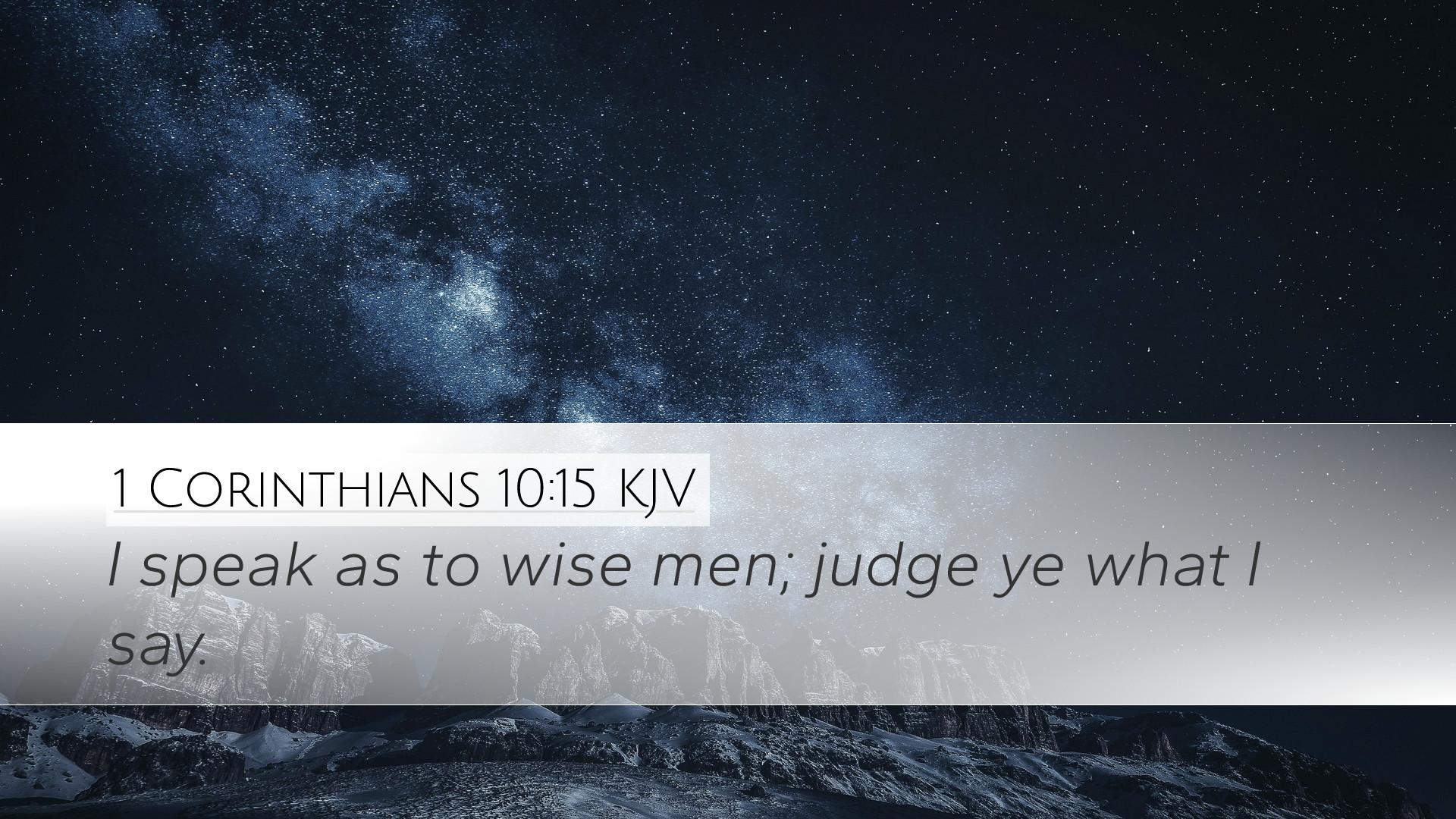1 Corinthians 10:15 - Commentary Insights
Verse: "I speak as to wise men; judge ye what I say."
Overview
This verse occurs within a passage where Paul addresses the issue of idolatry and its implications for Christians. Here, he appeals to the discernment and wisdom of his audience, urging them to consider the gravity of his message critically. This commentary synthesizes insights from renowned public domain commentators to deepen understanding and application.
Exegetical Analysis
-
Matthew Henry:
Henry emphasizes the importance of discerning judgment among believers. He notes that Paul, as an apostle, seeks to engage the Corinthian church on a higher intellectual and spiritual plane. Henry asserts that the appeal to “wise men” indicates Paul’s respect for their capacity to grasp profound spiritual truths, encouraging them to exercise their wisdom in assessing his teaching.
-
Albert Barnes:
Barnes elaborates on the rhetorical technique employed by Paul. By addressing the Corinthians as “wise men,” Barnes suggests that Paul challenges them to utilize their wisdom, as claimed by them, for spiritual understanding. He argues that wisdom in Paul’s context implies a readiness to receive, analyze, and act upon deep theological truths without being led astray by false teachings or worldly influences.
-
Adam Clarke:
Clarke offers insights into the socio-cultural background of the Corinthian church. He explains that the Corinthians prided themselves on their wisdom and knowledge, which made them susceptible to pride. Paul’s admonition serves as a reminder that true wisdom must be tested and aligned with the teachings of Christ and His apostles. Clarke urges that discernment is vital in community settings where falsehoods can easily take root.
Theological Implications
This verse highlights several theological implications pertinent to the life of faith and community:
-
The Call to Discernment:
Paul encourages the church to actively engage their intellect and faith. The exhortation to “judge” implies a responsibility to evaluate teachings critically, underscoring an active faith that does not passively accept all ideas.
-
The Nature of True Wisdom:
True wisdom, according to Scripture, aligns with understanding and obedience to God’s Word. Wisdom is not merely intellectual but demands application in a communal context.
-
The Role of Community:
This verse underscores the communal aspect of interpretation. The “you” in this context is plural, suggesting that the process of discernment involves collective wisdom as the body of Christ engages in dialogue around Scripture.
Practical Applications
From this verse, pastors, students, and theologians can derive several practical applications:
-
Encouraging Critical Engagement:
Leaders should foster an environment where congregants feel empowered to ask questions and engage with teachings critically.
-
Teaching Biblical Discernment:
Seminars and studies on how to discern truth from error can equip the church to stand firm against false doctrines.
-
Fostering Community Dialogue:
Encourage regular discussions around Scripture that integrate diverse perspectives within the church while remaining rooted in biblical truth.
Conclusion
In 1 Corinthians 10:15, Paul presents a clarion call to wisdom and discernment. His challenge to the Corinthian church is deeply applicable today, as believers are encouraged to evaluate teachings critically and live out their faith with intentionality. By drawing from the wisdom of past commentators, the modern church can better navigate the complexities of faith in a contemporary world.


